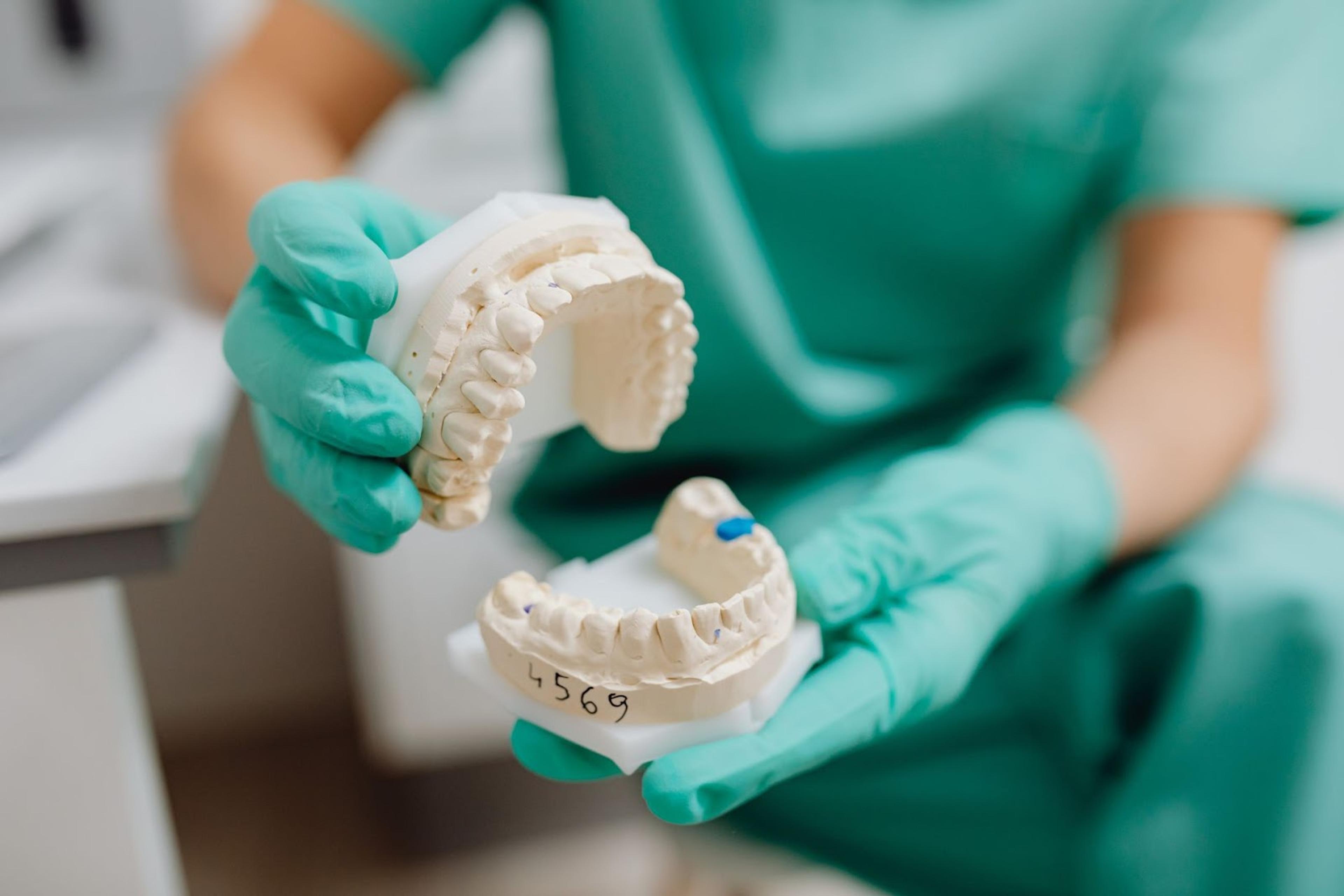ADEA Pre-Dental Requirements 2025
Discover everything you need to know about the ADEA pre-dental requirements in this comprehensive article.
Posted July 1, 2025

Table of Contents
The journey to dental school starts with understanding and meeting the American Dental Education Association (ADEA) pre-dental requirements. These requirements ensure that students are academically prepared for the challenges of professional schools and set a strong foundation for success in dentistry.
The Dental Admission Test (DAT), offered through the American Dental Association (ADA), is a crucial part of this process, and students should refer to the ADA's website for more information. This guide will help pre-dental students navigate their coursework, timelines, and additional requirements, making the path to dental school clear and achievable.
Read: How to Get Into Dental School: Essential Tips and Guidelines
Pre-Dental Pathway Overview
What Is the Pre-Dental Pathway?
The pre-dental pathway is a structured academic and extracurricular journey designed to prepare students for admission to dental schools. It focuses on completing specific science and non-science courses, gaining clinical experience, and developing skills essential for dentistry. Pre-dental students typically spend four to five years completing the required coursework and gaining relevant experience.
Professional School Prerequisites
Dental schools have standardized prerequisites that align with the ADEA guidelines. These requirements ensure that applicants have the foundational knowledge in science and humanities needed for dentistry. Additionally, these prerequisites align with the guidelines set by the American Dental Association (ADA).
General Policies
- Online Coursework: Some programs may accept online coursework, but many prefer in-person classes for science courses with a laboratory component. Always check individual school policies.
- Grading: All required courses must be completed with a grade of C or higher.
- Credit-by-Exam Policies: Advanced Placement (AP), International Baccalaureate (IB), and CLEP credits may fulfill some prerequisites, but policies vary by school.
- School-Specific Requirements: Admission requirements can differ among dental schools. Students should research individual schools and stay updated on their policies.
Pre-Dental Course Requirements
The core coursework for pre-dental students forms the foundation of knowledge and skills needed for dental school admission. Each course plays a vital role in preparing students for the Dental Admission Test (DAT) and the academic challenges of dental school. Below is a detailed breakdown of the science and non-science course requirements, along with tactical recommendations to help students fulfill these requirements effectively.
Science Courses
Biology
| Requirement | Details | Examples | Recommendations |
|---|---|---|---|
| General Biology | One year (12–15 lecture hours + 2–3 lab hours). | BIOL 1107 + BIOL 1108 | Ensure lab components are included. Plan to take both semesters early in your academic timeline. |
| Microbiology | Required by some dental schools. Provides an understanding of microorganisms and their applications in dentistry. | MCB 2610 | Check whether Microbiology is explicitly required for your target schools. |
| Upper-Level Biology | Strongly recommended by many dental schools (e.g., Genetics, Cell Biology, Molecular Biology). | MCB 2400/2410 (Genetics), MCB 2210 (Cell Biology) | Select at least one upper-level biology course with a lab to strengthen your application and prepare for the DAT. |
| Human Anatomy | Recommended by some schools and highly relevant for dentistry. | BIO 446L | Consider adding Anatomy to gain a deeper understanding of body systems relevant to dental procedures. |
Chemistry
| Course Type | Requirement | Details | Examples | Recommendations |
|---|---|---|---|---|
| General Chemistry | Two semesters (6 lecture hours + 2 lab hours). | Provides foundational knowledge in stoichiometry, chemical bonding, reactions, and properties of matter. | CHEM 1127 + CHEM 1128 OR CHEM 1124 + 1125 + 1126 | Take these courses early to prepare for Organic Chemistry and Biochemistry. Confirm lab components are included, as schools typically do not accept lecture-only sequences. |
| Organic Chemistry | Two semesters with lab work. | Focuses on understanding reaction mechanisms, stereochemistry, and biomolecular synthesis—all essential for dental school and DAT preparation. | CHEM 2443 + CHEM 2444 + CHEM 2445 | Schedule Organic Chemistry after completing General Chemistry. Use DAT prep resources to reinforce key concepts like reaction mechanisms and functional group transformations. |
| Biochemistry | One semester (3 lecture hours). | Explores metabolic pathways, enzyme functions, and biomolecular structures critical for understanding human biology and dental materials. | MCB 2000 | Verify if Biochemistry labs are required for your target schools. Some programs may recommend upper-level Biochemistry (with labs) for a stronger foundation in advanced sciences. |
Non-Science Courses
| Course Type | Requirement | Details | Examples | Recommendations |
|---|---|---|---|---|
| Math (Statistics) | One semester of Statistics; some schools may recommend Calculus. | Prepares students to analyze research data, interpret scientific literature, and excel in the Quantitative Reasoning section of the DAT. | STAT 1100 | Enroll in healthcare-focused Statistics if available. Add Calculus if required or recommended by your target dental schools. |
| English Composition & Literature | One year (6 credit hours). | Develops critical writing and communication skills essential for patient care, documentation, and collaboration in professional settings. | ENGL 1100 + ENGL 1200 | Take healthcare or science-focused writing courses if offered. Ensure the courses satisfy general education and pre-dental requirements. |
| Psychology & Sociology | Recommended. | Builds understanding of patient behavior, social dynamics, and communication skills critical for effective dental practice. | PSYC 1100, PSYC 1101, SOCI 1100 | Include at least one introductory course in Psychology or Sociology to strengthen interpersonal skills and patient interaction knowledge. |
| Ethics | Recommended. | Prepares students for ethical decision-making in clinical and dental practice. | PHIL 2000 | Choose a healthcare or clinical ethics course if available, as it offers direct relevance to dentistry. |
| Foreign Languages | Optional but beneficial (e.g., Spanish). | Enhances communication with diverse patient populations, particularly in areas with significant non-English-speaking communities. | SPAN 1100 | Spanish is especially valuable in areas with large Spanish-speaking populations. Other language skills can be helpful based on regional demographics. |
Humanities and Social Sciences
| Subject | Details | Examples | Recommendations |
|---|---|---|---|
| Psychology | Builds understanding of patient behavior, communication skills, and social dynamics. | PSYC 1100 + PSYC 1101 | Take an introductory course in Psychology to develop foundational knowledge relevant to patient interactions. |
| Sociology/Anthropology | Provides insights into cultural dynamics and patient-centered care. | SOCI 1100 | Consider taking Sociology to improve your understanding of diverse populations and their needs in healthcare settings. |
| Ethics | Prepares for ethical decision-making in clinical practice. | PHIL 2000 | If available, choose a healthcare-focused ethics course to gain practical knowledge applicable to dentistry. |
| Foreign Languages | Spanish or other languages improve communication with diverse patient populations. | SPAN 1100 | Spanish is particularly valuable in areas with large Spanish-speaking populations. |
Additional Electives
| Elective | Details | Examples | Tactical Recommendations |
|---|---|---|---|
| Mechanical Drawing/Studio Art | Develops manual dexterity and fine motor skills, which are critical for dental procedures. | ART 1000 | Enroll in hands-on art courses to improve precision and hand-eye coordination. |
| Small Business Management | Offers knowledge of managing a private practice. | MGMT 2000 | Consider taking business electives to gain practical insights for managing your dental career. |
| Advanced Anatomy | It provides in-depth knowledge of the human body, which is directly applicable to dentistry. | ANAT 3000 | Opt for this elective if offered as part of upper-division biology courses. |
Timeline for Pre-Dental Coursework
4-Year Plan
For students aiming to complete pre-dental requirements alongside their undergraduate degree in the standard timeframe.
- Years 1–2: Focus on foundational science courses (e.g., General Biology, General Chemistry, Physics). Include one semester of Statistics and an English course to fulfill non-science requirements early.
- Years 3–4: Transition to advanced science courses (e.g., Organic Chemistry, Biochemistry, and upper-level electives like Genetics or Microbiology).
- Extracurriculars: Start shadowing a dentist or volunteering in a dental clinic in Year 2 or 3. Research opportunities or leadership roles in pre-health organizations can be added in Year 3.
- DAT Preparation: Begin focused DAT prep after completing the core sciences (Biology, Chemistry, Organic Chemistry) and plan to take the DAT in the summer before Year 4.
- Application Process: Use Year 4 to finalize dental school applications, secure recommendation letters, and participate in interviews.
5-Year Plan
For students who want to take a lighter course load, explore additional electives, or engage in more extracurricular activities and research.
- Spread required science and non-science courses across five years, leaving room to focus on challenging courses individually (e.g., Organic Chemistry and Biochemistry in separate semesters).
- Electives and Advanced Courses: Include optional courses like Advanced Anatomy, Psychology, or small business management to prepare for dental practice.
- Extracurriculars and Research: Take advantage of the additional year to shadow dentists, participate in dental outreach programs, or work in a lab.
- DAT Preparation: With a less compressed schedule, students can begin preparing for the DAT earlier (e.g., Year 3 or 4) and schedule the test when they feel confident, such as during a summer session.
Expert Tip: A well-thought-out plan is critical for completing pre-dental requirements efficiently while balancing extracurricular activities, DAT preparation, and personal commitments. Below is a more detailed and tactical breakdown of timelines and strategies for success.
Customized Academic Plans
Importance of Academic Advisors:
- Meeting regularly with an academic advisor is crucial for tailoring a degree plan that aligns with your goals, major, and dental school prerequisites. Advisors can help track your progress, schedule difficult courses strategically, and ensure you meet all requirements by your intended graduation date. They can also assist in planning your coursework, including the option of taking courses at a community college to balance financial and time constraints.
- Advisors can also provide guidance on which upper-level electives or extracurriculars will strengthen your application.
Major-Specific Planning:
- Science Majors (e.g., Biology, Chemistry): These majors often overlap with pre-dental requirements, making it easier to fulfill prerequisites.
- Non-Science Majors: Engineering, business, or humanities majors should work closely with advisors to integrate pre-dental courses without delaying graduation.
Gaining Pre-Dentistry Experience
Shadowing and Volunteering
Shadowing dentists provides firsthand exposure to the dental profession, allowing students to observe patient care, clinical procedures, and practice management. Students should aim to shadow a variety of specialists, such as orthodontists and oral surgeons, to broaden their understanding of dentistry. Volunteering at community health clinics or nonprofit organizations complements shadowing by providing direct interaction with patients, developing communication skills, and addressing the needs of underserved populations. These combined experiences demonstrate dedication to the field and provide valuable insights for personal statements and interviews.
Read: How Many Shadowing Hours for Dental School? The Ultimate Guide (2025)
Research Opportunities
Participating in research related to health sciences or dentistry highlights a student’s intellectual curiosity and critical thinking skills. Research projects might focus on oral health, dental materials, or public health issues like access to care. Opportunities can be found through university professors, dental school programs, or summer research internships. Completing a project over a semester or longer allows students to develop skills in data analysis, problem-solving, and scientific writing, all of which add depth to a dental school application.
Extracurricular Activities
Extracurricular involvement in pre-dental or pre-health organizations helps students develop leadership skills and connect with peers who share similar goals. Many clubs offer resources like DAT preparation workshops, networking events, and mentorship opportunities with dental professionals. Taking on leadership roles or organizing outreach programs, such as dental health education campaigns, demonstrates initiative and a commitment to improving oral health in the community.
Preparing for the Dental Admission Test (DAT)
Importance of the DAT
The DAT assesses knowledge in key areas such as biology, general and organic chemistry, quantitative reasoning, and perceptual ability. These sections measure both foundational scientific understanding and the ability to think critically, analyze complex problems, and interpret visual information—skills that are central to dental education and practice.
Key Subjects to Focus On
- Biology
- General and Organic Chemistry
- Quantitative Reasoning
- Perceptual Ability
When to Take the DAT
Students should take the DAT after completing core science courses, typically during the summer before their final undergraduate year. This timing allows students to apply their knowledge from coursework while leaving room for a potential retake if needed. Planning DAT preparation during a lighter academic period or summer break ensures adequate study time and focus on achieving a competitive score.
Pre-Dentistry Application Resources
Researching Dental Schools
Researching dental school requirements is essential to tailor your application to each program’s expectations. Utilize resources like the ADEA Official Guide to Dental Schools and the TMDSAS guidelines to understand prerequisites, application deadlines, and unique program offerings. These tools provide detailed information on academic, experiential, and test score requirements for dental schools across the country.
Application Timelines
Begin preparing application materials at least a year before your intended dental school start date. This includes drafting personal statements, securing official transcripts, and completing the ADEA AADSAS application. Early preparation ensures you meet priority deadlines, which can improve your chances of being considered for interviews and scholarships.
Letters of Recommendation
Strong letters of recommendation are a crucial component of a dental school application. Request letters from professors, dentists, or employers who know your academic abilities and professional character well. Provide them with ample time to write and offer details about your accomplishments and goals to help them craft a compelling and personalized endorsement. Aim to collect these letters early in the application cycle to avoid delays.
Work With a Dental School Admissions Coach
Get personalized guidance to strengthen your dental school application! Our expert admissions coaches can help you.
Key Takeaways
- Complete required courses like biology, general and organic chemistry, biochemistry, physics, statistics, and English composition, ensuring lab components are included where necessary.
- Shadow dentists, volunteer in clinics, engage in research, and participate in leadership roles through pre-dental organizations to strengthen your application.
- Take the DAT after completing core science courses, focusing on biology, chemistry, quantitative reasoning, and perceptual ability, typically during the summer before your final undergraduate year.
- Use resources like the ADEA Official Guide and TMDSAS guidelines to understand program-specific prerequisites, deadlines, and unique requirements.
- Prepare personal statements, request letters of recommendation from professors and dentists, and submit transcripts at least one year before your intended start date.
Final Thoughts
The dental school journey is competitive, but entirely doable with the right plan. If you stay on top of your coursework, build meaningful clinical and research experience, and apply strategically, you'll put yourself in a strong position. The earlier you start preparing, the more confident (and less stressed) you'll be come application time.
If you want expert eyes on your personal statement, help choosing programs, or support with your full app strategy, work with a top dental admissions coach. They've helped pre-dental students like you turn hard work into acceptances—and they're here to help you do the same.
Related Articles
Explore more resources to guide your journey toward dental school:
- What Do You Learn in Dental School?
- How Much Does It Cost to Go to Dental School (2025)
- DMD vs. DDS: What's the Difference and Which is Better?
- How Hard Is It (Actually) to Become a Dentist?
- Best Majors for Dental School: A Guide for Pre-Dental Students
- The Complete Guide to the Dental School Application
- How to Become a Dentist: Application, Degree Programs, FAQs
- The Top 25 Dental Schools – and How to Get In
FAQs
What major is best for pre-dental students?
- Any major is acceptable for pre-dental students, as long as they complete the required science and non-science coursework. However, biology, chemistry, and health professions-related majors are popular choices because they naturally align with dental school prerequisites, reducing the need for additional courses. Non-science majors, such as engineering or business, can still pursue dentistry but may need to plan carefully with an academic advisor to integrate all required pre-dental courses.
What are the entry requirements for dentistry?
- To gain admission to dental school, students must complete required coursework in sciences like biology, chemistry, and physics, as well as non-science areas like English and statistics. Clinical experience, such as shadowing dentists or volunteering in dental clinics, is essential to demonstrate commitment to the profession. Students must also take the Dental Admission Test (DAT) and achieve competitive scores to showcase their readiness for dental school.
How many years is pre-dentistry?
- Pre-dentistry typically takes 4–5 years to complete, depending on the student’s academic pace and extracurricular involvement. A four-year timeline aligns with completing an undergraduate degree, while a five-year plan may include a lighter course load, additional electives, or time for research and volunteering. Students are encouraged to plan their timeline based on personal goals, major requirements, and dental school application readiness.
What are the dental school prerequisites?
- Dental school prerequisites include core science courses like general biology, general and organic chemistry, biochemistry, and physics, all of which typically require lab components. Non-science prerequisites include English composition and math, often in the form of statistics. Additionally, some schools may recommend upper-level courses, such as microbiology, genetics, or psychology, to strengthen an application. Students should research their target dental schools to confirm specific requirements.












